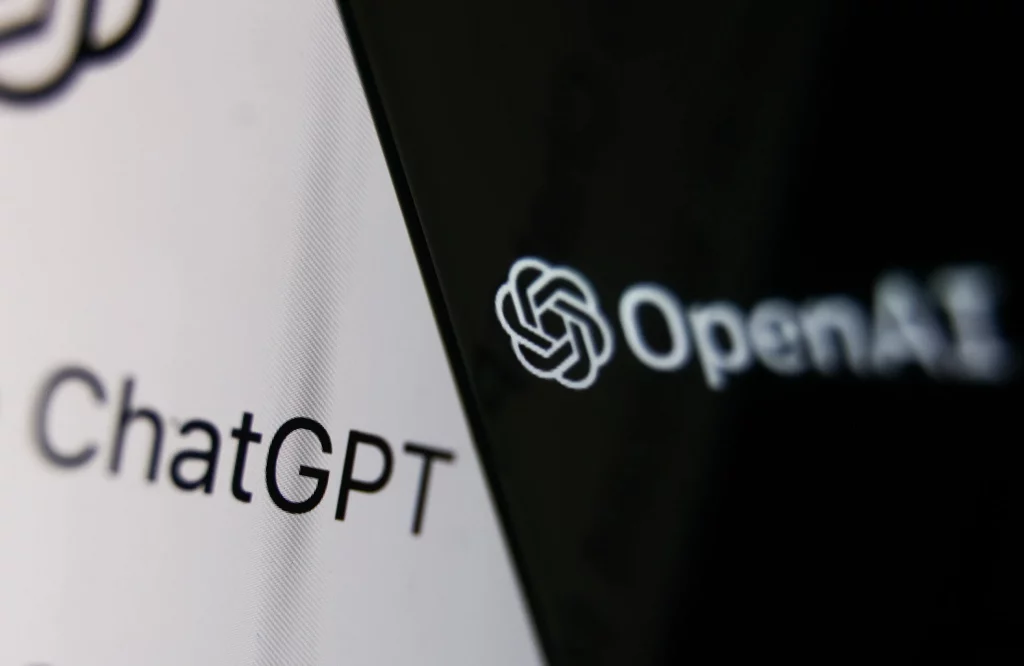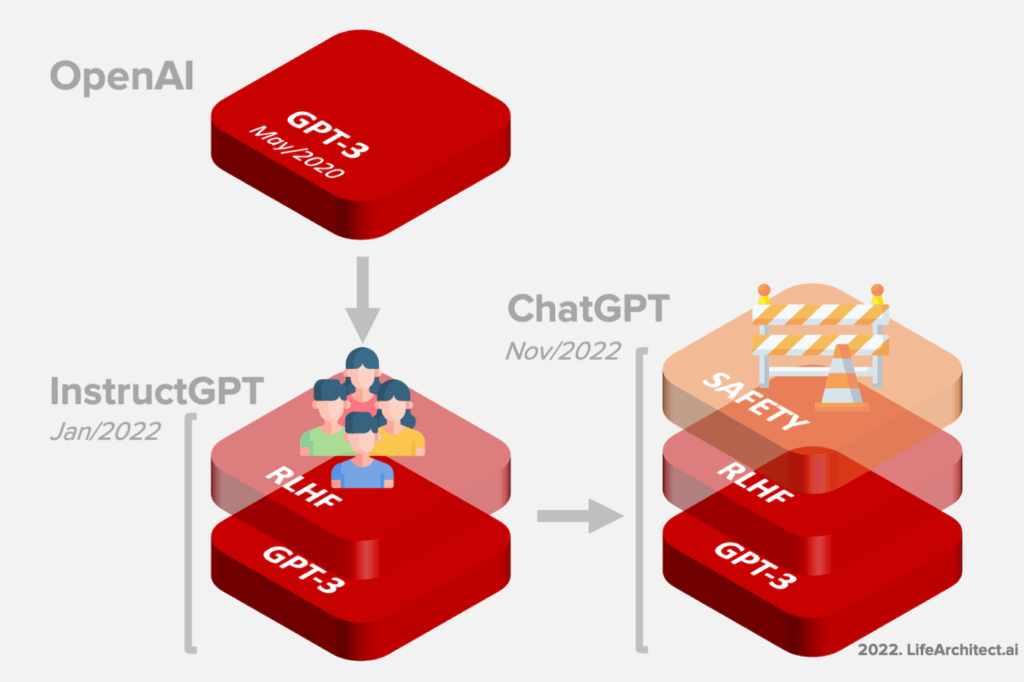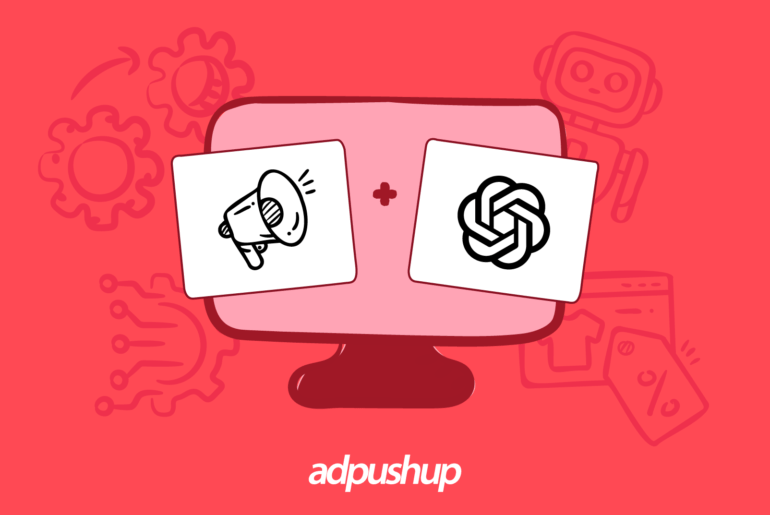AdTech, or advertising technology, is an industry that uses technology to automate and optimize buying, selling, and displaying digital advertising. The use of ChatGPT in AdTech has the potential to significantly change the industry by improving ad targeting, personalization, and engagement.
One emerging technology that has the potential to revolutionize AdTech is ChatGPT.
ChatGPT is a language model. It can generate human-like responses. It has been used for various applications, from generating natural language text to answering questions and engaging in conversation.

- OpenAI has projected revenues of $200 million for 2023 and $1 billion by 2024.
- ChatGPT set a record for the fastest app to reach 100 million users, surpassing Google+.
But what about its potential impact on AdTech, specifically for publishers?
Keep reading this blog post if you want to have a better understanding of the potential impact of ChatGPT on AdTech and publishers. As we delve into this topic, it’s important to note that ChatGPT is an emerging technology, and its impact on AdTech is still largely theoretical.
Here is a recent update about the implication of ChatGPT in AdTech:
Perion Network, the Israel-based, small-cap company has gained a revenue of 33% which rose to $209.7 million in the last quarter of the year 2022. Perion’s technology helps Bing advertisers to monetize their ads on the platform, and Perion earns revenue share from ad clicks on the search engine. Their strength was the implication of ChatGPT that improved search capabilities for its users, better meeting their needs and expectations. (Source: Motley)
However, there is reason to believe that it could bring new opportunities for publishers in the industry. Let’s dive in.
Also Read: How To Personalize Targeted Ads: 10 Ways AI Can Help
Overview of ChatGPT
ChatGPT is a language model. OpenAI developed it by using deep learning algorithms. The goal of ChatGPT is to generate human-like responses when someone inputs text-based prompts.

It is part of a family of GPT (Generative Pre-trained Transformer) models, which have been trained on vast amounts of data to enable them to generate natural language text.
ChatGPT, in particular, was trained on a diverse range of text, including books, articles, and websites, to develop a wide range of knowledge and language skills.
In AdTech, ChatGPT could be used in various ways to improve the efficiency and effectiveness of digital advertising.
- For example, it could be used to generate ad copy that is more engaging and personalized or to improve the targeting and segmentation of ads.
- It could also be used to generate more natural-sounding chatbot responses or to automate customer service interactions.
Here are Some of the Critical Capabilities of ChatGPT:
- Language Generation: ChatGPT can generate natural language text responding to various prompts, including questions, statements, and commands.
- Contextual Understanding: ChatGPT can understand the context of a conversation or text prompt, which allows it to generate more relevant and appropriate responses.
- Multilingual: ChatGPT has been trained on text in multiple languages, allowing it to generate text in various languages.
- Transfer Learning: ChatGPT can be fine-tuned on specific tasks or domains to improve its performance on those tasks.
Also Check: Top 4 Techniques of the Ad Tech Ecosystem Explained
ChatGPT in AdTech & Opportunities for Publishers:
To address these challenges, AdTech companies are exploring various new technologies and approaches, such as programmatic advertising, native advertising, and influencer marketing. ChatGPT can potentially revolutionize the AdTech industry and bring a range of opportunities for publishers.

Some of the potential benefits of using ChatGPT in AdTech include the following:
Better Targeting and Personalization
ChatGPT’s natural language processing capabilities allow it to analyze vast amounts of data and identify patterns and trends in consumer behavior.
It could enable publishers to create more targeted and personalized ads tailored to each user’s interests and preferences.
By providing more relevant and engaging content, publishers could see increased engagement and a higher ad click-through rate.
Increased Revenue
ChatGPT could increase the value of advertising inventory for publishers by providing more targeted and personalized ads.
It could lead to higher CPMs (cost per thousand impressions) and increased revenue.
Additionally, ChatGPT’s ability to analyze data and identify trends could help publishers identify new revenue streams or opportunities for monetization.
More Engaging Content
ChatGPT’s natural language processing capabilities could also be used to create more engaging content for users.
For example, publishers could use ChatGPT to generate personalized user recommendations based on their interests and behavior or to create interactive content that responds to user input.
However, it’s important to note that there are also potential challenges and limitations to using ChatGPT in AdTech.
These include privacy and data security issues, as well as the need for significant investment in technology and infrastructure.
Nonetheless, the potential benefits of using ChatGPT in AdTech are significant, and we’ll likely see more experimentation and innovation in this area in the coming years.
Also Check: Effective Ad Tech Optimization: An Ad Tech Course for Publishers
Challenges and Limitations:
While ChatGPT has the potential to bring significant benefits to the AdTech industry, a number of challenges and limitations must be considered. These include:
Privacy and Data Security Concerns
ChatGPT’s ability to analyze vast amounts of user data raises concerns about privacy and data security.
There are risks associated with storing and processing sensitive user information, and publishers and AdTech companies need to take steps to protect user privacy and ensure data security.
Technical Limitations
While ChatGPT is an impressive technology, it’s essential to recognize its limitations. For example, ChatGPT may need help with certain types of content or data and may need help to analyze specific languages or dialects accurately.
Additionally, ChatGPT’s performance may be affected by factors such as network latency or hardware limitations.
Infrastructure and Investment Requirements
Integrating ChatGPT into AdTech systems will likely require significant technological and infrastructure investments. It could be a barrier to entry for smaller publishers or AdTech companies and lead to further industry consolidation.
Ethical Considerations
The use of AI technologies like ChatGPT raises several ethical considerations around issues such as bias, transparency, and accountability. Publishers and AdTech companies need to consider these issues and ensure that their use of ChatGPT is ethical and responsible.
Overall, while ChatGPT can potentially bring significant benefits to publishers and the AdTech industry, it’s essential to approach its use with caution and consider the challenges and limitations that may arise carefully.
By doing so, we can ensure that we’re using this technology responsibly and effectively.
The Future: How ChatGPT Might Change the State of Ad Tech?
As ChatGPT continues to evolve and be integrated into AdTech systems, it has the potential to drastically change the state of the industry in the coming years. Some of how this could happen to include:
Increased Personalization
ChatGPT’s ability to understand and respond to natural language could enable more personalized user advertising experiences. It could lead to higher engagement rates, increased click-through rates, and ultimately higher revenue for publishers.
More Efficient Ad Delivery
By analyzing large amounts of data in real time, ChatGPT could enable AdTech companies to deliver more relevant ads to users more efficiently. It could lead to a reduction in advertising spend, as companies would be able to target their ads more effectively.
Improved User Experience
ChatGPT could also create more engaging and interactive ad experiences like chatbots and virtual assistants. It could improve the overall user experience and increase users’ likelihood of engaging with ads.
Greater Transparency
ChatGPT’s ability to understand natural language also enables greater transparency in the ad ecosystem. By analyzing user conversations and interactions with ads, it may be possible to gain a deeper understanding of user preferences and behaviors, leading to more targeted and relevant ads.
Also Read: 9 Steps to Choose the Best AdTech Company
Latest Advancements in AI
Google recently announced a new feature for its AdSense platform called “Auto Ads,” which automatically uses machine learning to optimize ad placements and formats for publishers.
This technology uses NLP to analyze the content of a web page and determine the best ad placements and formats based on factors such as user behavior and page layout.
Additionally, Facebook has been investing heavily in machine learning and AI to improve its advertising offerings, including using NLP to target better user ads based on their interests and behaviors.
These developments demonstrate the increasing importance of NLP and machine learning in AdTech and suggest that there is significant potential for ChatGPT to bring new opportunities for publishers and advertisers in the coming years.
The Bottom Line
While ChatGPT offers exciting possibilities for AdTech and publishers, concerns around privacy and data security need to be addressed.
As with any new technology, there will be a learning curve as publishers, and advertisers figure out the best ways to use ChatGPT to create value for their audiences.
Ultimately, the success of ChatGPT in AdTech will depend on how well it is integrated into existing systems and how effectively it is used to create value for publishers and advertisers.
We look forward to seeing how ChatGPT evolves and shapes the industry in the coming years. Sign up here to supercharge your ad revenue. AdPushup helps some of the largest media brands optimize their ad yield using machine learning.
FAQ
ChatGPT can analyze user data and generate insights into their behavior and preferences. This information can then be used to create more targeted ads more likely to be relevant to the user.
Using ChatGPT in AdTech can provide publishers several benefits, such as creating more engaging content, better-targeting ads, and increasing revenue through more effective monetization strategies.
One of the main challenges associated with integrating ChatGPT into AdTech systems is ensuring the privacy and security of user data. Additionally, there may be technical limitations to what ChatGPT can do, impacting its effectiveness in certain areas.
The use of ChatGPT in AdTech has the potential to significantly change the industry by improving ad targeting, personalization, and engagement. It could also lead to new opportunities for monetization and content creation and the development of new AdTech tools and technologies.

Shubham is a digital marketer with rich experience working in the advertisement technology industry. He has vast experience in the programmatic industry, driving business strategy and scaling functions including but not limited to growth and marketing, Operations, process optimization, and Sales.




![CTV vs OTT Advertising: Which one is Right Pick for Publishers? + [6 Bonus Strategies] Ott vs Ctv](png/featured-image-270x180.png)


